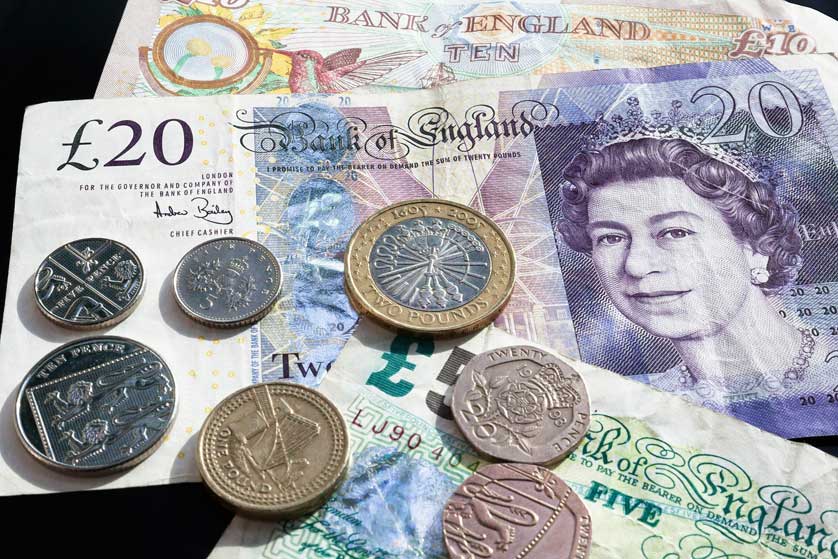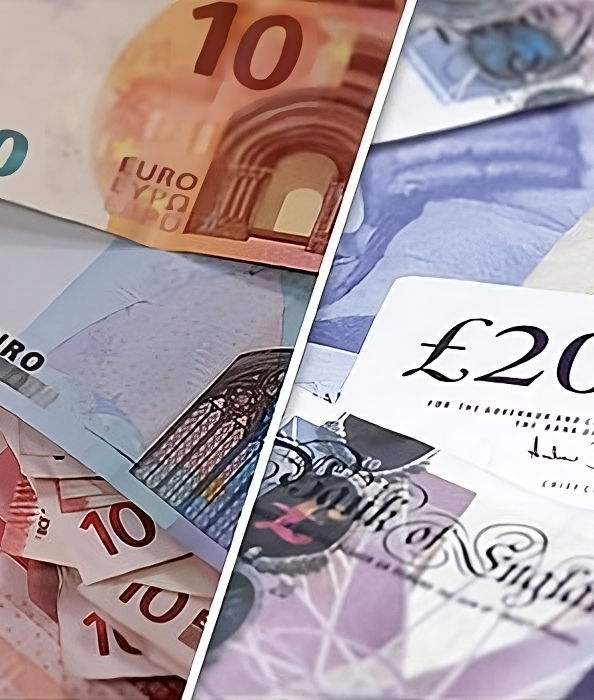The 10 Best Tips For Currency Exchange Rate Margins
Understanding the exchange rate margins is crucial for anyone who has to manage international transactions, travelling or conducting business in countries that are not yours. The difference between the selling and buying rates of currencies makes up the margin for exchange rates. This could influence the overall price of the transaction. These margins may vary among providers, affecting the amount you pay for making exchanges or the profit you make when investing. By understanding the nuances surrounding margins on exchange rates, you can make educated decisions that will reduce costs and enhance your financial outcome. Here are the top ten important tips to manage margins on exchange rates.
1. Understanding the significance of exchange rate margin
– The spread is the difference between the asking price (the price of the currency) and the price at which it is sold (the bid price) for that currency. Understanding this concept is vital for business owners, travelers and investors, since it can affect the amount you get when converting currencies. A wider spread is a better rate of exchange which allows you to make more informed financial decisions.
2. Compare the margins of different providers
– Different financial institutions and currency exchange services offer different rates of exchange. Compare the margins offered by different providers, including banks, exchange kiosks, and online platforms. Websites such XE.com and OANDA give insights into current rates and margins. They allow you to select the best possible choice for your currency transactions.
3. Understanding the influences of markets on Margin
The margins of exchange rates can be affected by a variety of variables, including market volatility, economic indicators and geopolitical changes. For instance, a sudden economic crisis or political instability in a nation can increase the margins due to increased risk. Stay informed of the underlying developments in the market to help anticipate fluctuations in currency rates and take rapid decision.
4. Make use of online Currency Exchange Platforms
Online currency platforms usually provide better exchange rates and less margins when compared to traditional banks. Companies like Wise (formerly TransferWise) and Revolut generally offer real-time rates with lower fees and higher margins. You can reduce costs by utilizing these platforms when you have to exchange currencies for business or travel.
5. Timing Your Currency Exchange
The timing of the exchange rate can have a major impact on the margins you earn. Exchange rates change throughout the day depending on supply and demand. The monitoring of these fluctuations can help you identify the best times to exchange currencies, possibly leading to better margins. These decisions can be made easier by using tools that track the trends in currency.
6. Strategies for Currency Hedging: Leverage
Currency hedging can be an effective tool for companies and investors to control the margins of exchange rates. Hedging is the process of using financial instruments to secure the exchange rates for future transactions safeguarding against fluctuations in currency value. This method can be employed to minimize the impact and enhance profitability of companies who are involved in international trading.
7. Keep an eye on the Economic Indicators
– Different economic indicators, such as the rate of inflation, interest rates and employment figures can impact the exchange rates. A country that has an increase in interest rates could attract foreign investments, making their currency stronger and decreasing its exchange rate margin. These indicators will help you gain an understanding of the movements of currencies. This allows you to adjust your strategies.
8. Travelers should consider the local currency before travelling
When you travel, choose to pay in local currency rather than your currency at home. This can help you avoid unfavorable exchange rate rates that typically come with the dynamic currency conversion (DCC) choices offered by merchants. The exchange rate tends to be better when you pay in local currency.
9. Beware of hidden costs
– Be aware that services that offer currency exchange services may charge hidden costs. They may charge transaction, service, or commissions that can add to the margins you can see. Always take the time to read the fine print of your contract and ask about any additional charges before proceeding with a currency exchange to avoid unexpected costs.
10. Speak with a financial professional to handle large transactions
Contact a financial expert or currency specialist if you deal with large amounts of money or if your currency exchanges are complex. They can provide valuable insights. They can aid you to understand the margins of exchange rates as well as provide ways to cut down on your expenses. Their expertise is beneficial for businesses engaging in international transactions or investors looking to optimize their currency holdings.
With these helpful tips on exchange rate margins and margins, you'll be able to navigate the complexities of transactions in currencies more efficiently when you're on the move doing business or managing your investments. Understanding how to manage exchange rate margins can help you make better financial decisions, aligned with your goals. This can ultimately save you money and enhance your financial strategy. View the recommended united states url for blog examples including cop to usd, us dollar to rupees, currency exchange near me, 1 usd in rupees, cop to usd, indian rupees to usd, dollar to inr, usd to php, dollar to mexican peso, dollar to yen and more.

Top 10 Tips For Destination Currency And Currency Exchange Rates
Understanding the currency of destination is vital for anyone who wants to travel internationally, conduct international business or invest in foreign markets. Destination currency refers to the currency of the country you're in or dealing with, and it can affect your financial decisions. Fluctuations, conversion fees as well as the overall economic climate will affect your spending while you travel as well as how profitable or efficient your business transaction as well as investing are. If you are familiar with the destination currency and the implications of it, you can optimize your strategies for managing your finances and make more informed decisions. These are the top 10 tips for managing your destination currency.
1. Before traveling, check the local currency.
– Before heading to a new destination make sure you research the local currency. Understanding the currency of the country relative to your own currency is essential. Additionally, you should be aware on its currency denominations. This will help you control your spending better and reduce the amount you pay for products and services. Websites such as XE.com offer actual exchange rates in real time and historical data, allowing you to determine how much your cash will be worth abroad.
2. Review exchange rates prior your trip
Being aware of these changes will allow you decide on the most suitable moment to exchange your money. Utilize currency tracking tools and apps to set alerts for favorable exchange rates. If you notice a trend suggesting that the currency is weakening, consider exchanging your funds earlier to maximize your purchasing power on your travels.
3. Think about the Costs of Currency Conversion
The fees charged by banks, exchange services and ATMs for conversion of currency could vary greatly. Be aware of the costs that are associated with changing your currency of origin to the currency of your destination, as these fees could eat up your budget. Compare rates from different service providers, and think about using online platforms that offer affordable exchange rates as well as less fees for currency conversion.
4. Utilize Local Currency for Transactions
If you are paying for purchases overseas, it is always better to use the local currency rather than the one you own. If you choose to pay in your home currency it is likely to result in an automatic currency converter (DCC) that will charge higher fees and less favorable exchange rates. The local currency allows you to take advantage of lower rates and reduce costly expenses, ultimately extending your budget even further.
5. Plan for Cash Needs In The Future
While debit and credit cards are widely accepted, it is still important to have some cash to hand in the event that you require to purchase a few items, give a tip, or visit a place that doesn't take card transactions. It's important to know ATM charges and cash withdrawal limits when traveling abroad. The ability to withdraw larger amounts in one go can help cut down on transaction costs. Making sure you have local currency will make traveling simpler and less anxiety-inducing.
6. Understand Local Payment Preferences
Different countries have their own preferences in payment methods. In some places cash is the most popular option, while others may lean heavily on digital transactions or credit cards. Research the payment practices in your region to find out what is accepted. This can help plan your payments and ensure that transactions are conducted without any difficulties.
7. Be aware of the currency risk that you are taking for your company
If you're doing business in another country be aware of risk to your currency that comes with fluctuating exchange rates. Financial performance and profit margins could be affected by a sudden change in value or currency of the destination. To mitigate currency volatility, consider using hedging methods, such as future contracts to secure exchange rates.
8. Track Your Spending
It is important to monitor your travel budget and your spending in local currency. Keep track of your expenditure making use of budgeting applications, or keeping a detailed record of all expenses. This will ensure you don't overspend and that you have enough cash to cover the entire cost of your journey.
9. Educate Yourself on Financial Regulations
Different countries have their own rules and laws regarding cash transactions, currency exchanges, and other reporting requirements. To avoid legal problems while traveling or conducting business be aware of the laws. Some countries may restrict the amount of cash that you can bring or take out, whereas others may require big transactions to be reported. Being informed will help you get through these regulations without hassle.
10. Consult Currency Experts for Investments
It is worth consulting with a specialist in currency or financial advisers if your investment portfolio is comprised of foreign markets. They can provide valuable insights on the impact the fluctuations in currency have on your investment portfolio and can help you develop strategies to manage risk associated with currency. Their knowledge can be valuable in understanding the complexities of foreign currencies and optimizing your financial results.
If you follow these tips on managing destination currency You can make sense of the complexities of traveling, conducting business, and evaluating investments more efficiently. Understanding the implications of destination currency will empower you to make better financial choices that match your goals, ultimately enhancing your overall experience as well as your financial plan. View the top CZK to EUR for site tips including british pound to dollar, usd to cad, cop to usd, usd to peso, convert gbp to usd, usd to pound sterling, currency exchange, aed to usd, us to peso, usd to japanese yen and more.


Leave a Reply